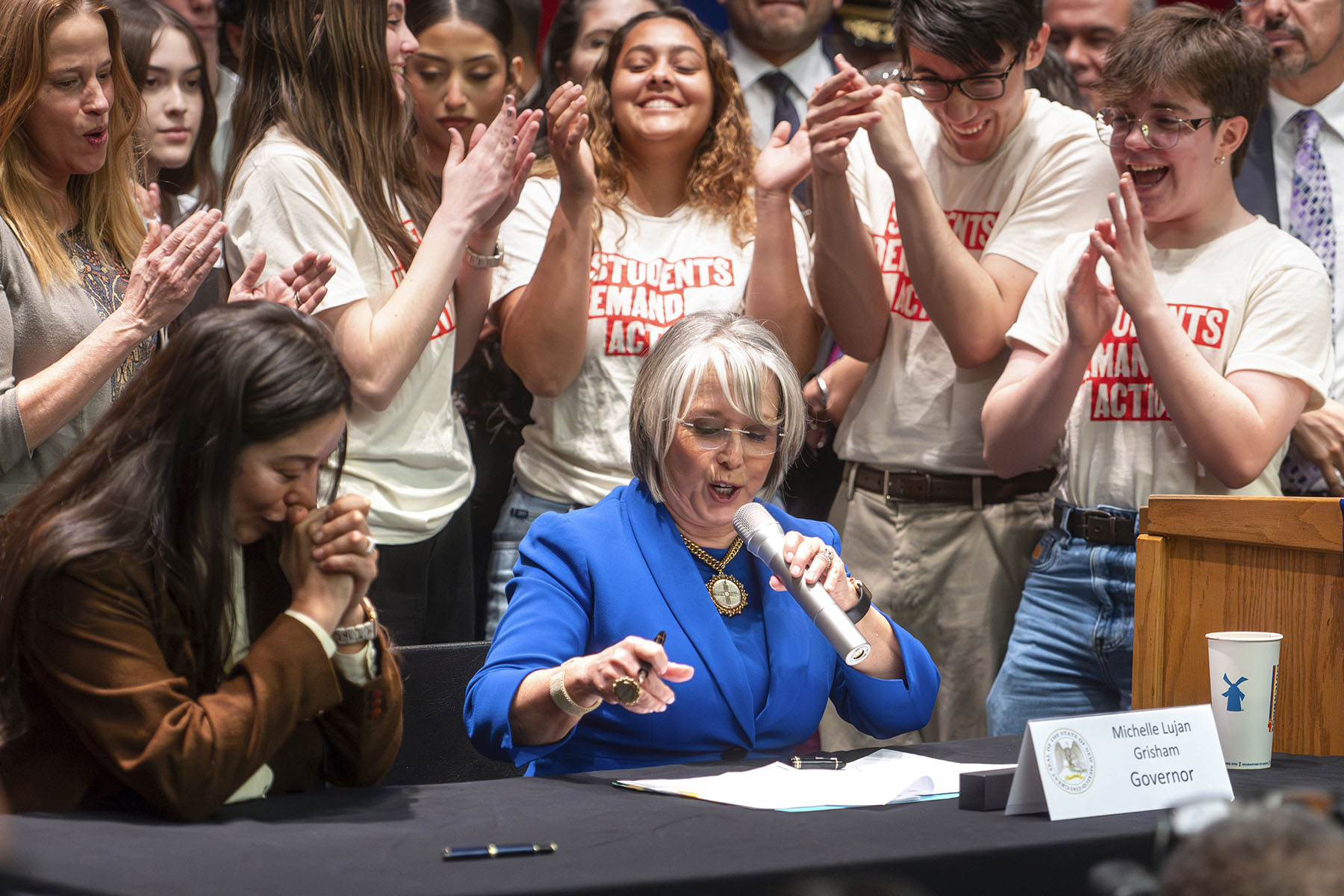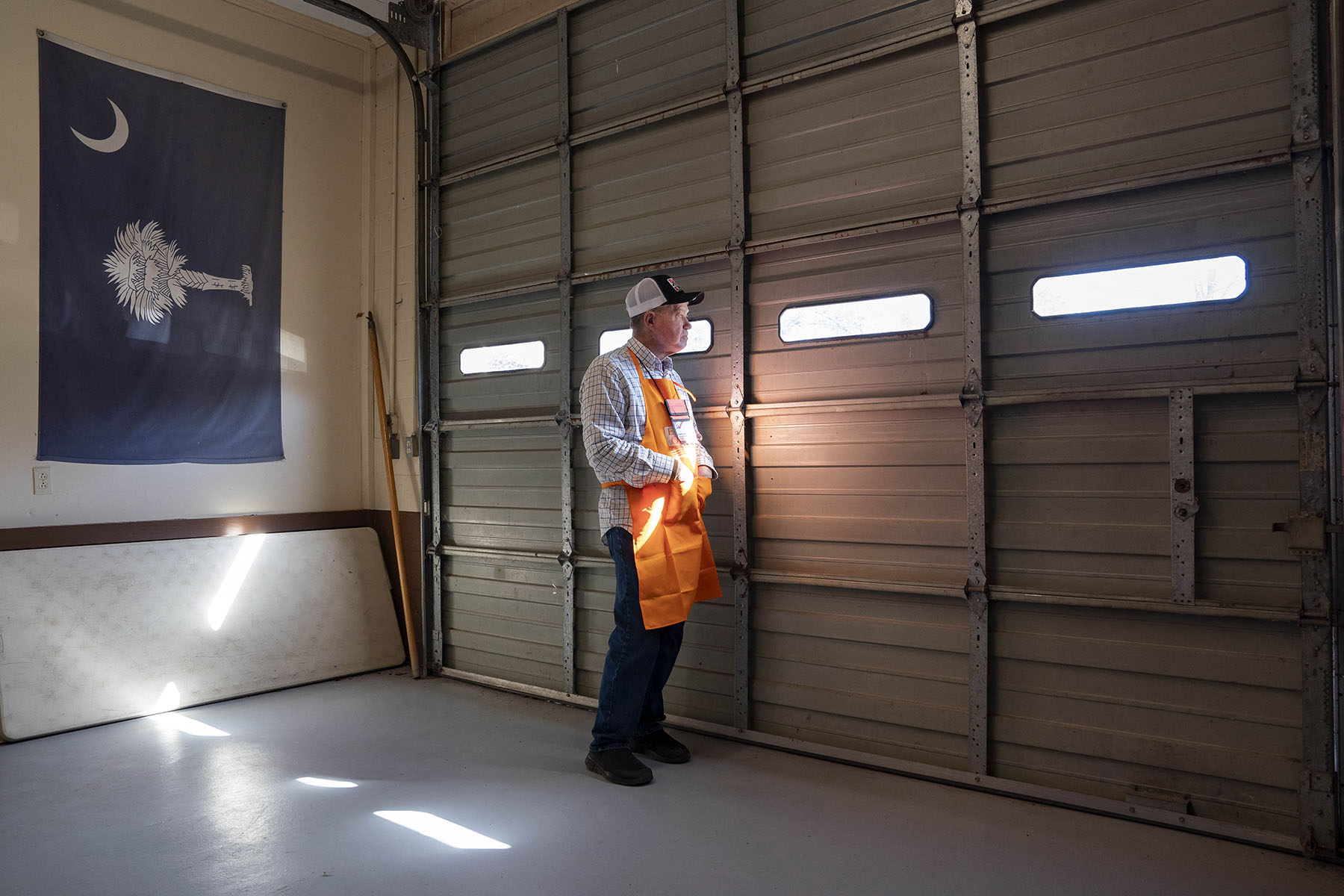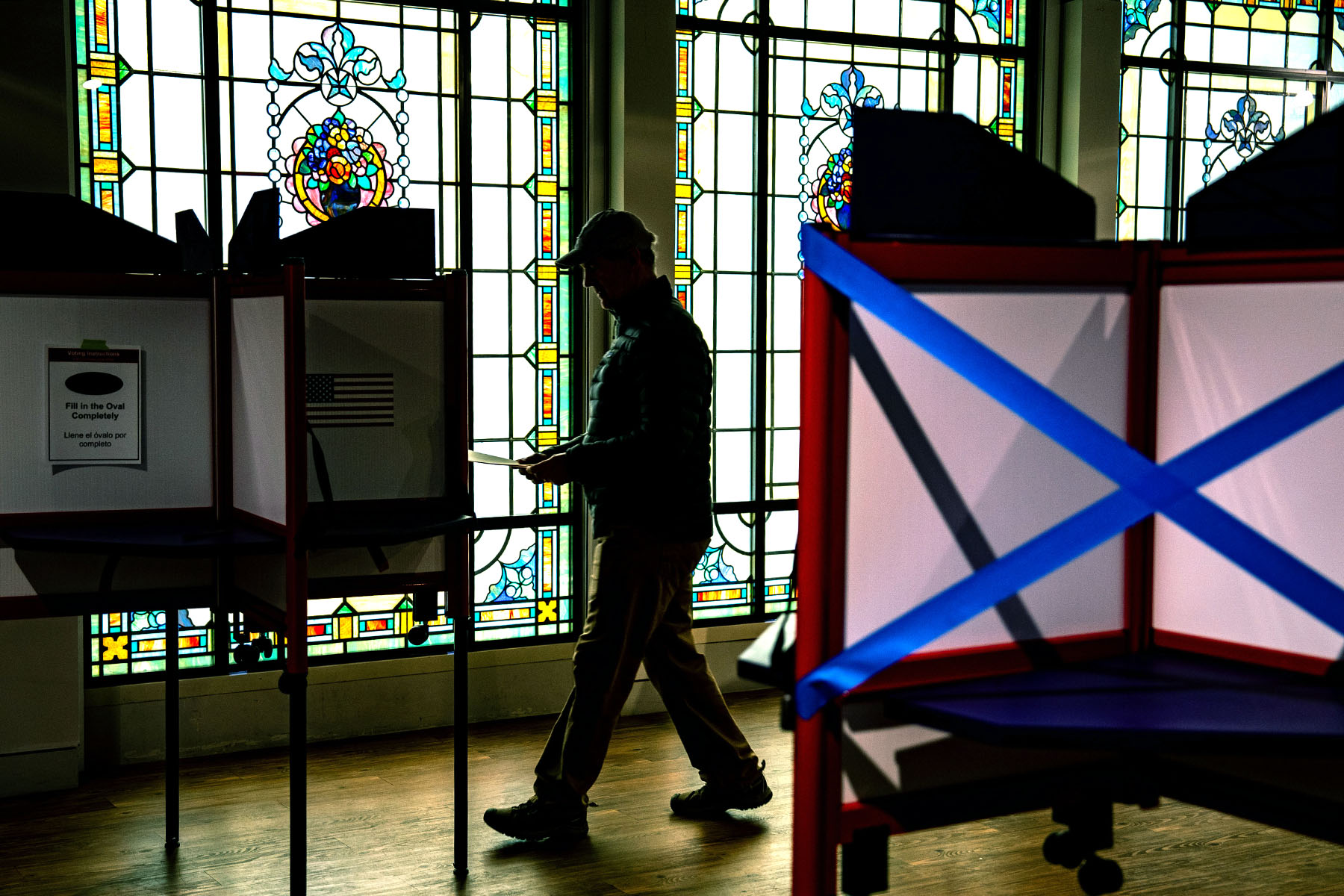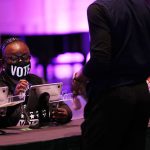A growing number of states are considering restrictions on guns near voting sites, a move that some lawmakers and voting rights groups hope will better protect not just voters, but election administrators and poll workers, from threats of violence and intimidation during a fraught election year.
Only about a dozen states and Washington, D.C., completely prohibit people from carrying a gun — either openly or concealed — at a polling place. The bulk have passed their measures since the 2020 election, when an election denialism movement led by former President Donald Trump and his supporters at times sparked violence. Few laws explicitly address carrying guns at ballot drop box sites or election offices. A handful more prohibit open carry at voting sites, though concealed carry may be allowed.
At least a half-dozen states have introduced legislation this year that would either clearly ban firearms at polling locations or expand existing restrictions. In two, new laws have been sent to the governor – with different results.
Last month, New Mexico’s Democratic governor signed the latest of such measures into law, a bill that makes it illegal to openly carry a gun within 100 feet of a polling location and 50 feet of a drop box.
“Guns and voting don’t mix. People should be able to go to the polls and cast their ballots free of intimidation or worry about the presence of firearms, or even worse, potential violence,” Gov. Michelle Lujan Grisham told The 19th, stressing that she thought that voters in her state deserved the “right to be free from violence or intimidation at the polls.”
Weeks later, Virginia’s Republican governor vetoed a similar bill in his state.
There is a long and racist history of political violence at the ballot box, but it has been exceedingly rare in recent election cycles. Nevertheless, polling from the Global Project Against Hate and Extremism found that 40 percent of American voters say they are fearful for their safety at polling places, particularly of a shooting on Election Day. An uptick since the 2020 election in harassment and threats of violence against a women-majority election workforce, coupled with high-profile instances of voter intimidation in the 2022 midterms — while an election denialism movement gains traction — has some policymakers looking to address mounting concerns.
“By and large, our elections have been peaceful. These laws are really just intended to keep things that way,” said Jessica Ojeda, an attorney at the Giffords Law Center to Prevent Gun Violence. Ojeda stressed that despite an increase in threats of violence, most states do have some kind of restrictions on firearms near voting sites — and most states have not seen significant instances of the use of guns to threaten voters and election workers. Still, she said, as the 2024 election cycle gains speed, there is a real fear among voters and voting officials alike, and a desire to take action.
“We have seen a rise in armed intimidation, particularly around election spaces over the last few years,” Ojeda said. “So we really see these as a proactive defense.”
Worries about potential violence have at times been stoked by Trump, the presumptive Republican nominee, who continues to spread conspiracy theories about the nation’s election system.
“It has really sowed doubt in the integrity of our elections and the process,” said Robyn Sanders, counsel for the Brennan Center for Justice, an organization that tracks voting rights and other legal issues. “This creates a breeding ground again for hostility and animosity, and increases the risk of violent acts during elections.”
While some Republican lawmakers have insisted that allowing firearms at polling places keeps voters safe, Sanders disagreed.
“The presence of guns, even in the hands of so-called responsible gun owners and individuals, can still increase the risk of accidental shootings,” she said. “We already know that accidents happen and the more guns that are in circulation and present, the greater chance for mishaps.”

Gun safety groups point to that as impetus for legislation that clearly restricts firearms at polling places. Kris Brown, president of Brady United Against Gun Violence, a national organization that advocates for gun control measures, noted that restrictions on firearms in polling places have legal footing. The Supreme Court has ruled that these locations fall under a category of “sensitive places” — such as legislative assemblies, courthouses, government buildings and schools — where such prohibitions are considered constitutional.
“The bottom line is, yes, the Second Amendment exists — but it doesn’t swallow the First,” she said. “It doesn’t swallow my right to live. It doesn’t swallow my right to vote.”
There has also been more legislation to protect the privacy of election workers and add penalties for threatening them. Ojeda said gun restrictions are another way to help those who are tasked with running free and fair elections.
“The highest court in our nation recognized that firearms and polling places just do not mesh because of the inherent threat that they present to the exercise of our democratic rights,” Ojeda said. “When democracy is involved, we need to be a little bit more restrained.”
Separate from activity in New Mexico and Virginia, lawmakers in Connecticut, Michigan and Vermont have this year given preliminary approval to related firearms bans. Voting rights groups have publicly applauded a California measure that they view as a model because it would clarify that the presence of guns in and around a polling location is considered intimidation, and it would give an impacted individual a civil remedy.
Such legislation could help address growing concerns about voter intimidation at drop boxes, a form of voting that Trump and his supporters routinely criticize as fraudulent despite little proof. If Trump and others continue to lie about the security of drop boxes, experts worry it will stop people from voting altogether. Drop boxes have made voting more accessible — but also have become a target for voter intimidation. In 2022, armed private citizens stood outside ballot drop box areas in Maricopa County, Arizona. The League of Women Voters of Arizona sued over the incidents and later reached a settlement.
“It does seem like the potential disenfranchisement risk is high going into 2024,” said Rachel Orey, an associate director at the Bipartisan Policy Center, a group that works with officials to make elections more secure.
Republicans who oppose these restrictions argue that they would unfairly disarm gun owners. In Virginia, Gov. Glenn Youngkin highlighted the Second Amendment as part of his reasoning for vetoing more than two dozen bills that would have enacted gun restrictions.
“I swore an oath to defend the Constitution of the United States of America and the Constitution of Virginia, and that absolutely includes protecting the right of law-abiding Virginians to keep and bear arms,” he said in a statement.

Still, Democrats who are leading some of the ban efforts are finding bipartisanship — with compromise. In New Mexico, the bill initially did not include an exemption for people with concealed carry permits. That changed in the final version, with additional exemptions for police officers, people conducting non-election business near a polling place or drop box, or people sitting in their cars. Republicans, including state Sen. Mark Moores, applauded the change during floor debate, saying, “This is the right thing to do in this environment,” according to The Trace.
Voting rights experts say laws that bar firearms from polling places are another way to help the people who run America’s decentralized elections. Some top officials, such as Michigan Secretary of State Jocelyn Benson, have faced armed protesters at their homes. A Michigan county clerk and her staff also faced threats. So have the people who make elections function, such as poll workers Ruby Freeman and her daughter, Wandrea “Shaye” Moss, who were targeted by Trump and his associates like Rudy Giuliani.
“None of this exists in a vacuum,” said Brown. “They’re having trouble right now recruiting poll workers for a reason.”
Ojeda has been a part-time poll worker in several states over the years. Now a resident of Virginia, she is still figuring out how safety will play a role in whether she signs up to be a poll worker again — and that was before the governor vetoed the bill to add gun restrictions.
“When you’re working the polls, there’s always that question when you go in thinking, ‘I hope everything goes well today,’” she said. “The worst-case scenario can be really bad.”







